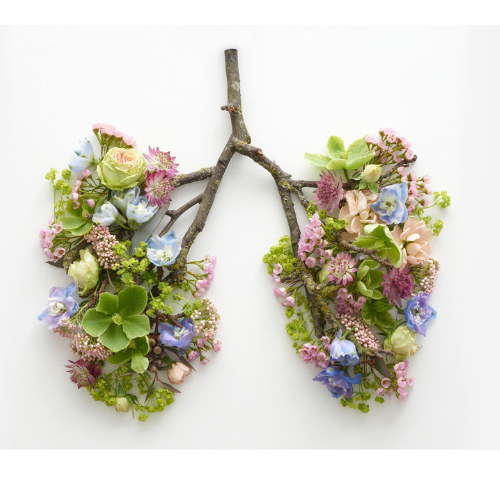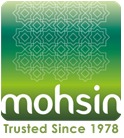Need help? Call us:
+44 116 273 8614
Asthma: Its Natural Treatment

One can live weeks without food and days without water, but can only survive a few minutes without air.
Breathing is the most important and urgent human function.
What is Asthma?
When there is any difficulty or obstruction with breathing, the individual becomes distressed and panicky and gasping for air. Difficulty in breathing, due to narrowing of the air passage, particularly when breathing out (expiration) is called Asthma.
An asthmatic seizure is caused by spasm of the smooth muscles of the Bronchi. Recurrent attacks of paroxysmal (spasm) and dysponea (difficulty or laboured breathing) together with wheezing is the most common form of asthma. It is called Bronchial Asthma or Extrinsic Asthma. It is referred to as Zeeq-un-Nafs or Rabu in Arabic, Dama in Urdu and Panjabi.
Asthma is found all over the World; however, it is more common in some parts than others. 2% of children have asthma in China and Indonesia compared with 30% of children in UK and Australia. It is increasing at an alarming rate in Children in the UK.
Signs and Symptoms of Asthma
* The asthmatic paroxsym (spasm) consists of an acute dyspone (difficulty) whilst breathing out (expiration). Here the air is admitted into the lungs with reasonable ease, but exhaled with difficulty and labour.
* During the breathing out phase (expiration) there are whistling, squeaking and groaning sounds called Musical Rales or Rhonchi
* Cough and expectoration of Tenaccus mucos (phlegm) is common.
* In typical cases, the attack occurs at midnight or in the early hours of the morning. The person goes to bed apparently well but awakens about 2 am with shortness of breath, sits up in bed or may try to get near an open window.
* The face of the person during an attack of asthma is pale with anxious and alarmed expressions.
* There may be blueness (cyanosis) of lips and ears.
* The attack of asthma can last up to many hours, and unless treated, in some cases, can lead to death.
* After and attack, patient can be wheezy for a day or two. He or she often looks exhausted and falls asleep.
What Causes Asthma?
Asthma is a very complex disease with many causes. The main predisposing factors are:
Hereditary:
Bronchial Asthma tends to run in families.
Sex:
Males are more likely to have Bronchial Asthma.
Age:
Asthma attacks usually start in childhood or early adulthood.
Some of the immediate (proximate) causes are: –
Infections:
Especially, when not treated properly.
Metabolic Disturbances:
Such as poor digestion
Food Sensitivities:
Immediate onset of an attack can be due to the use of egg, fish (especially shellfish), nuts (especially peanuts)
While delayed onset can be due to the use of:
* milk and milk products
* corn and peanut oil
* chocolate
* wheat
* citrus
* iced cold drinks
* many chemical additives, colours and preservatives can cause an attack of asthma
* Stress and Emotional Shock can also trigger an attack of asthma
* Environmental Allergens: House mite, dog hair, sprays can also trigger an asthma attack.
Treatment of Asthma
The first step in the treatment of asthma is to avoid foods and drinks that the individual is sensitive to and in particular the ones listed under Causes of Asthma in the previous section.
The second step is to normalise and improve digestion.
An excellent herbal treatment for this is: –
1. Viola odorata, flowers or leaves 3 grams
2. Cichorium intybus, root 3 grams
3. Foniculum vulgare, seeds 3 grams
4. Borago officinalis 1 gram
5. Vitis Vinifera 3 grams
6. Glycyrrhiza glabra 3 grams
7. Justica adhatoda 3 grams
Instructions
First soak the above herbs in 250 mL of water, cover and leave soaked overnight. In the morning, pour content, including water into a pan and simmer for 15 minutes.
Strain and drink it lukewarm before breakfast.
Use up to 40 days and then review the situation.
As asthma is a form of allergy, use local honey: 1 teaspoon is a glass of warm water up to 3 times a day.
Disclaimer:
This information is provided for education and information purposes only. Please consult your healthcare professional for personal advice.
© 2009 by M. Salim Khan M.D. (M.A.) M.H. D.O.
Consultant Herbalist, Nutritionist and Iridoligist Mohsin Health
Founder and Principal of The College of Medicine and Healing Arts
www.mohsinhealth.com
www.comha.org.uk


